• female of Slavic origin; • militant vegan; • ex-SJW; • back from hell; • study inspiration; • mostly languages, cultural studies and criminology; • sunlight, spring, summer and heat ruin my mood; • blog's title is from a poem by Muçi Zade, translated by Robert Elsie. Tags: #til_MoM, #100dop_MoM 100 days of productivity!
Don't wanna be here? Send us removal request.
Text
100/100, long-overdue
Basically, I finished the 100 Days Of Productivity awhile ago, but I'm posting just now. I'm not 100% happy with myself — maybe, 50% happy. But I keep reading and practicing three languages on Duolingo every day; however, it's obvious that you can't learn a language with just Duo, so I've been reading on various ways to learn languages more efficiently and how to apply them in my daily study routine.
I'm thinking about starting another challenge soon, maybe a language challenge?
Executive dysfunction makes everything so hard, I can barely cope, but I’ll power through.
Just a picture of some cool books I bought; and yes, I am an adult and I bought a tamagotchi.

ALSO JOHNNY DEPP WON YESSSSSSSSS BABY
#100 days of productivity#100DOP#100dop_MoM#study#study challenge#study challenge_MoM#studyblr#smartblr#mine#duolingo#languages#books#reading#tamagotchi#executive dysfunction
0 notes
Photo
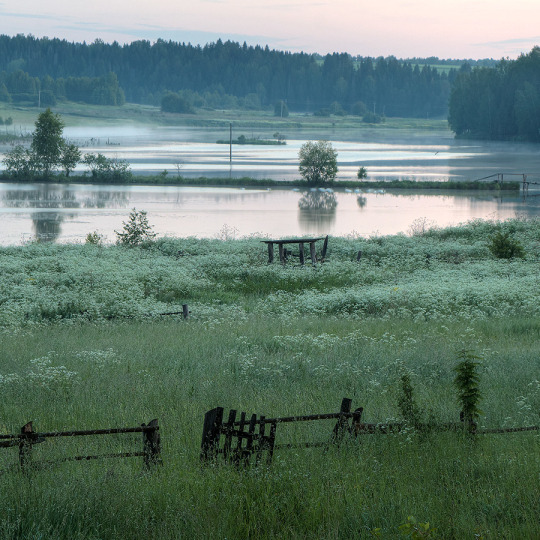

Sergey Ponomarev
22K notes
·
View notes
Text
98/100, 99/100
Sunday 17/04/2022
I had a lot to do, no time to read. So I was busy for the first half of the day, and then, back at home, I started falling asleep and hate to fight back. Also, I:
♦ listened to “La Curée” for ~40 minutes; ♦ practised Ukrainian on Duolingo.
Monday 18/04/2022
Practised languages on Duolingo in the morning, then listened to “La Curée” for ~40 minutes while doing house chores, and then I had MIGRAINE FOR FUCK’S SAKE I HATE APRIL I ALWAYS HAVE THE WORST MIGRAINES IN APRIL. So the day is ruined and my eyes still hurt and I'm not happy at all.

#migraine#migraines#100 days of productivity#100dop#100dop_MoM#study#study challenge#study challenge_MoM#studyblr#smartblr#mine#duolingo#languages#German#Spanish#Ukrainian#emile zola#books#reading
0 notes
Photo






Five vases by Jean Dunand circa 1925
Lacquered metal, coquille d'œuf
In addition to the lacquered metal technique that he perfected towards the end of the 1910s, another important technical device attributed to Jean Dunand is his signature use of crushed eggshell as a decorative element, a technique that he introduced and perfected in the early 1920s. The technique consisted of the use of eggshells that were washed and whose inner membranes were removed, after which they were delicately crushed and the fragments sorted according to size. Each particle was then applied to the fresh lacquer using tweezers. Coquille d’oeuf was often combined with lacquered metal, resulting in highly textured pieces with rich geometric presence, producing dramatic contrast against the dark lacquered surface. The instant commercial success of Dunand’s eggshell works prompted the artist to maintain a chicken coop in his workshop’s courtyard to meet the increasing demand.
114 notes
·
View notes
Photo

Rainy, blue New York, 1967. (via lostinhistory)
#the usa#new york#1960s#60s#retro#vintage#Dark Paradise#gloomcore#dullcore#cities#rain#rainy#aesthetics
7K notes
·
View notes
Photo
My brain must be dried up and barely alive then. It sure feels like that's the case.

7K notes
·
View notes
Photo
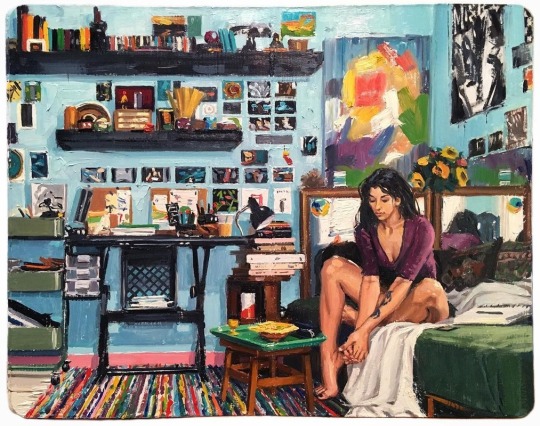


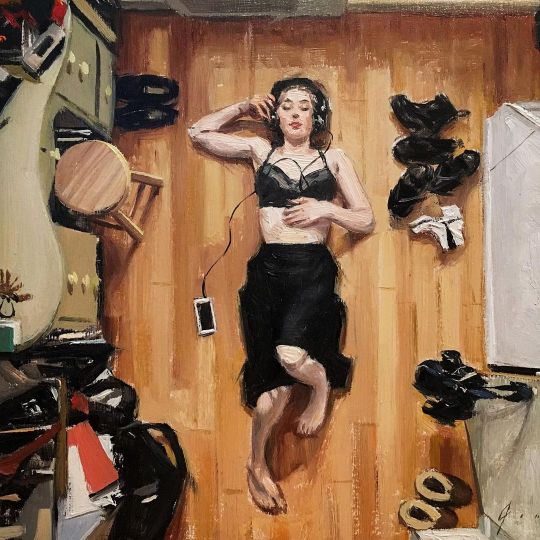
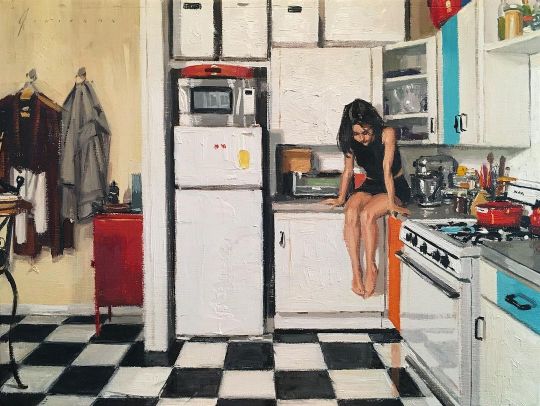

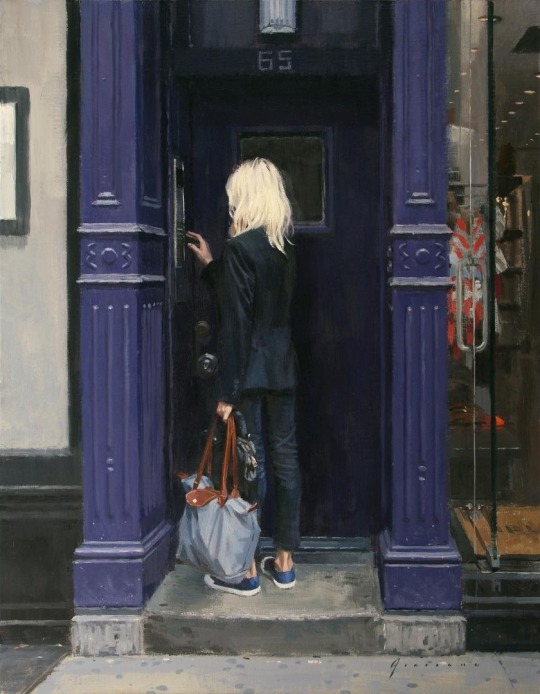
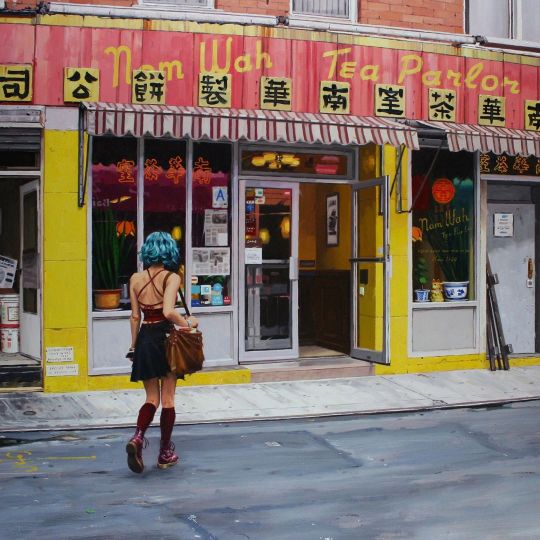
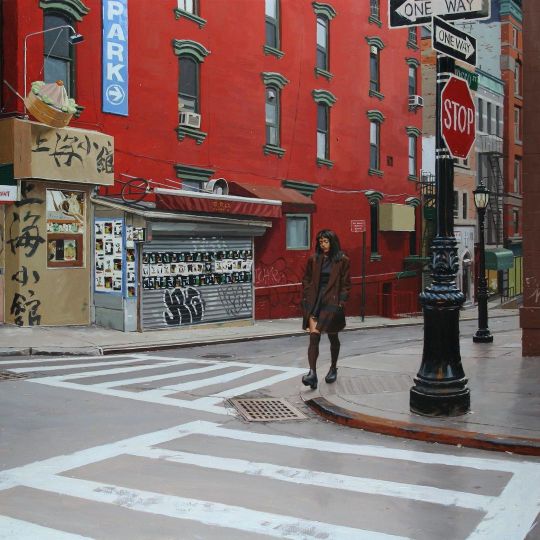
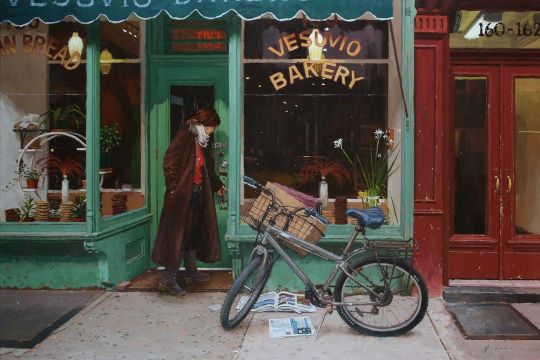
Vincent Giarrano on Instagram
180K notes
·
View notes
Text
95/100, 96/100, 97/100
I'm at the finish line!
Thursday 14/04/2022
♦ listened to “La Curée” for ~40 minutes; ♦ started reading “Everyday Life in Egypt in the Days of Ramesses The Great” by Pierre Montet; ♦ read “The Gulag Archipelago” for 1 hour; ♦ practised German, Spanish and Ukrainian on Duolingo; ♦ bought a pop-it and found out that it makes me fall asleep faster.
Friday 15/04/2022
Super sleepy, could barely keep my eyes open.
♦ listened to “La Curée” for ~40 minutes; ♦ read “The Gulag Archipelago” for 1 hour; ♦ practised German, Spanish and Ukrainian on Duolingo.
Saturday 16/04/2022
Today it was cold and snowy. I went to get a vaccination and got turned away because I didn't have just one out of 32984290840293842930 fucking documents with me that you're supposed to have as a patient. It has to be in the database, but it wasn't there. When I got vaccinated in the summer, the document wasn't required, but they said you need to have it this time. Had no time for reading, but at least I got to listen to “La Curée” for ~1,5 hours while on the tram.
Bought another notebook I absolutely do not need to cheer myself up.
Also, spent a lot of time practising languages on Duolingo.


#100 days of productivity#100dop#100dop_MoM#study#study challenge#study challenge_MoM#studyblr#smartblr#mine#duolingo#languages#German#Spanish#Ukrainian#emile zola#pierre montet#aleksandr solzhenitsyn#books#reading#vaccination#get vaccinated
0 notes
Photo
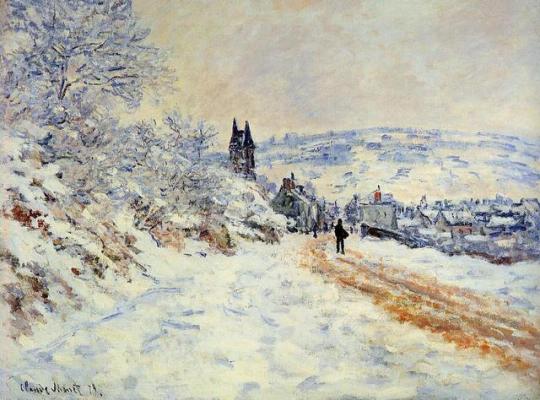
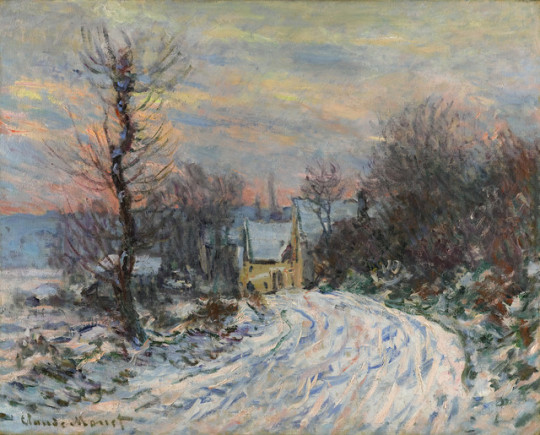

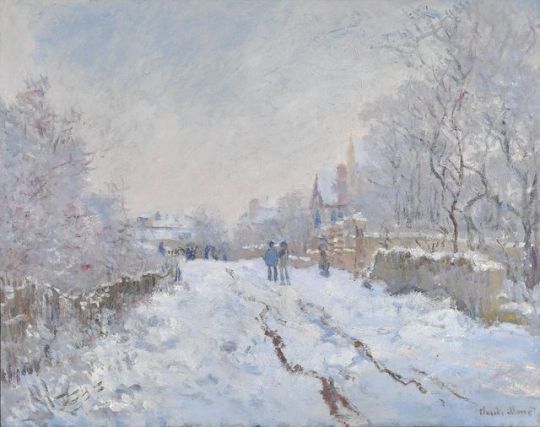
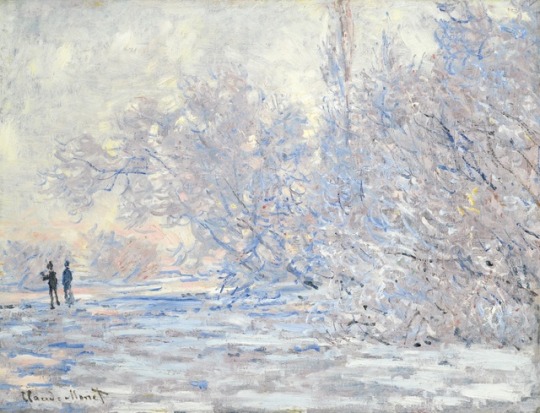
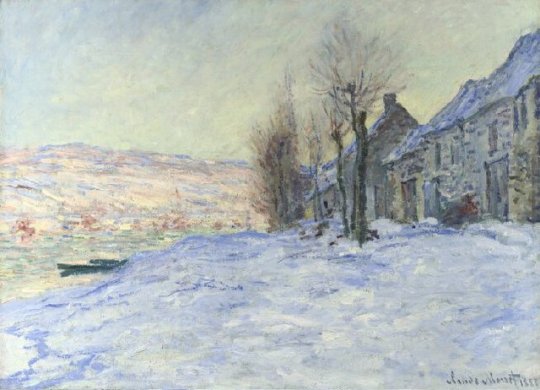
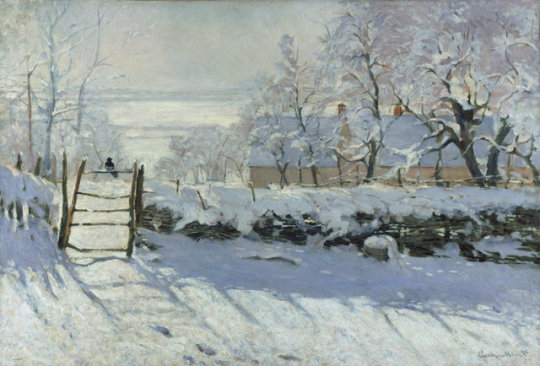
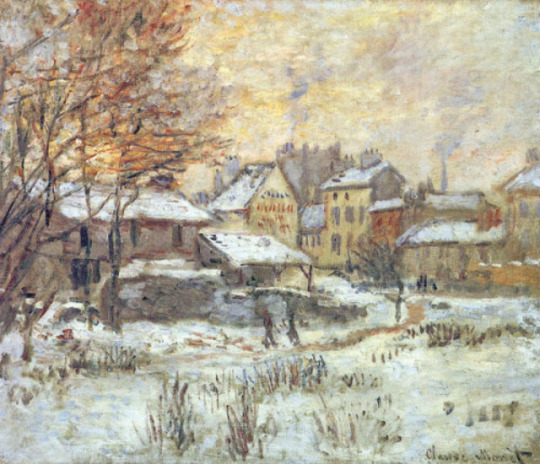
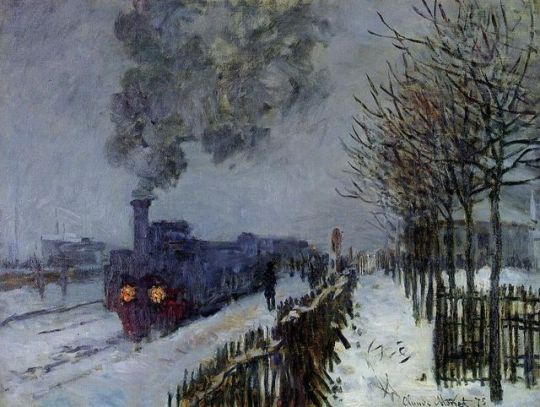
Some snow scenes in Claude Monet’s paintings.
43K notes
·
View notes
Text
93/100, 94/100
Tuesday 12/04/2022
♦ listened to “The Prisoner of the Caucasus” by A. Pushkin; ♦ read “Cannibalism” for 1 hour; ♦ read “The Gulag Archipelago” for 1 hour; ♦ read “My Gun Is Quick” for 30 minutes; ♦ practised German, Spanish and Ukrainian on Duolingo.
Wednesday 13/04/2022
♦ started to listen to “La Curée” by Émile Zola; ♦ finished “Cannibalism”; ♦ read “The Gulag Archipelago” for 1 hour; ♦ finished “My Gun Is Quick”; ♦ practised German, Spanish and Ukrainian on Duolingo.

#100 days of productivity#100dop#100dop_MoM#study#study challenge#study challenge_MoM#studyblr#smartblr#mine#duolingo#languages#German#Spanish#Ukrainian#Alexander Pushkin#the prisoner of the caucasus#aleksandr solzhenitsyn#mickey spillane#emile zola#la curee
0 notes
Photo




Alexander Spesivtsev was born prematurely in 1970 in Kemerovo, Russia, to a woman named Lyudmila. As a child, he was a loner and was only close to his mother. They had an unusual but close relationship and he shared a bed with her up until he was aged 12. When she was fired, she managed to get a job as an assistant lawyer in court. Lyudmila brought home photographs of corpses from work, and she and Alexander examined them. Later, Lyudmila had a daughter. According to investigators involved in the case, the mother, her son and daughter, all three, were isolated from the world and had common features: all three of them stole and always kept away from people, remaining in isolation.
Growing up, Alexander showed many sadistic tendencies and in 1988, at age 18, he met his first girlfriend, 17-year-old Eugenia. Although the relationship appeared to be blossoming, the fairytale didn’t last and Alexander’s mask was slowly slipping away. An argument led to Eugenia breaking up with him, however, he did not accept it. Alexander kidnapped her, tortured her for a month in his apartment until she succumbed to her injuries, dying of sepsis. For the murder of Eugenia, Alexander was sent to a psychiatric hospital in Oryol where he was diagnosed with Schizophrenia. During his time in the hospital, he asked another patient to help insert a metal ball into his urethra to make him more manly, however, this bizarre incident had the opposite effect, causing him erectile dysfunction and pain. Three years later, in 1991, he was discharged. This mistake by doctors would prove to be sinister. Once out, Alexander developed a hatred of street children that he viewed as the consequence of Russia’s emerging democracy. He and his mother, Lyudmila, began to lure children into their apartment. The victims would be chosen at random and were unaccompanied children, attending discos and playing in constructions sites. Once there, the victims were subjected to harsh beatings, rape and were then murdered and dismembered. The bodies of the victims would be cannibalized and the rest of the unwanted remains would be thrown into the Aba River late at night by Lyudmila. Alexander also fed some of the meat and bones to dogs.
When the severed heads, torsos and limbs of children began to wash up on the banks of the River Aba, the police started to investigate their deaths. An examination of the body parts was carried out, as a result of which it was established that there were a total of 70 body parts all belonging to children between the ages of 3 and 14. It was first thought that the remains were that of the victims of organ smugglers as several gangs were active at that time although no strong links could be made. One morning, plumbers arrived at Alexander’s apartment for a routine inspection and to relieve a clog. However, Alexander would not let them enter. The plumber left and later returned with a local police officer and they broke into the apartment by force, where they were greeted by a putrid odour that can only be compared to rotting meat. What followed was the discovery of human remains in all of the rooms of the apartment, including the refrigerator: faces, heads and bones. Children’s clothing and shoes were found throughout the apartment. A 15-year-old girl named Olya was also found still alive, bleeding from a severe stab wound to the chest. Alexander had escaped at the last second via the roof opening. Lyudmila was arrested and a week later, Alexander was located and arrested. It was also said that the sister of Alexander herself sometimes witnessed the brutal killings. The 15-year-old girl, Olya, who was found alive managed to testify against Alexander and his mother, Lydumila, before she later died in hospital. Olya told how Alexander killed her two friends, and she herself was forced to dismember their corpses. According to her, Lyudmila was the one who cooked the meat of the victims and afterwards, both Lyudmila and Alexander ate it, sometimes fed it to dogs and that Lyudmila also made her eat the meat from the other girls.
Despite the best efforts of investigators, the overall investigation was ultimately able to prove Alexander’s participation in only four crimes although he confessed to 19+ murders that he was accused of by police, and based on evidence is believed to have committed over 80 killings as early as 1991. In 1997, for the murder of three girls, the court sentenced Alexander Spesivtsev to 10 years imprisonment. As for his mother, Lyudmila, she admitted that she herself lured to the victims for Alexander and also admitted to disposing of their remains. However, she did not consider herself guilty. The prosecution insisted on 15 years in prison. The court found her guilty of complicity in the three murders and she was sentenced to 13 years imprisonment with detention in a general regime colony. However, in 1998, the court began to consider the case, but this time with four victims. A psychiatric examination of Alexander concluded that he was as insane, although a year ago, according to doctors, he was considered to have been completely sane at that time. As a result, the court was forced to sentence him to detention in the Oryol psychiatric special clinic. In 2008, Lyudmila was released from prison. Alexander’s sister, despite the fact that she was a vital witness to the brutal crimes, did not suffer any form of punishment. His mother, Lyudmila, and sister have been forced to move from the apartment where the murders occurred. Today, Alexander resides at the Kamyshin Regional Hospital. He is referred to as “The Novokuznetsk Monster” and “The Siberian Ripper”.
104 notes
·
View notes
Text
TODAY I LEARNED #12
...that the Eucharist — the eating of bread as flesh of Jesus and drinking wine as His blood — can be considered a form of theophagy, which is a ritualistic eating of a god. The practise dates back to prehistoric societies, where gods were eaten in the form of dough, bread, sacrificial animal's meat, or, in some religions, human flesh.
#til#today i learned#til_MoM#eucharist#theophagy#religion#prehistoric#christianity#sacrifice#human sacrifice#cannibalism#study#studyblr#smartblr#mine
0 notes
Photo

Nesting in the crown of Mary at St. Ottilien Archabbey, Oberbayern, Germany.
57K notes
·
View notes
Photo
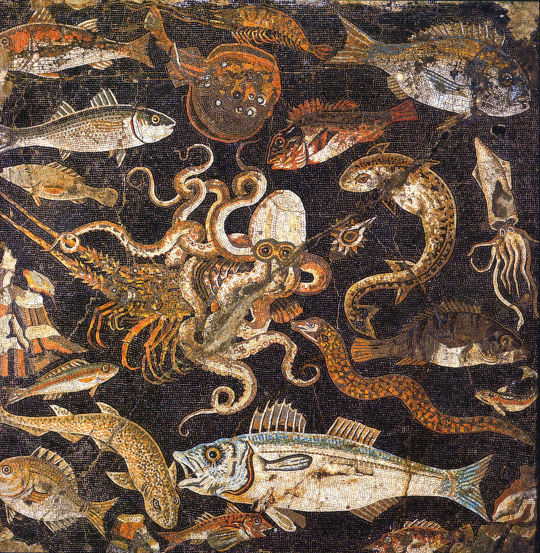
Mosaic from the impluvium of the House of Gometric Mosaics, Pompeii
Roman, 1st century AD
31K notes
·
View notes
Photo

USA. NYC. In a subway. 1996 Harry Gruyaert
18K notes
·
View notes




